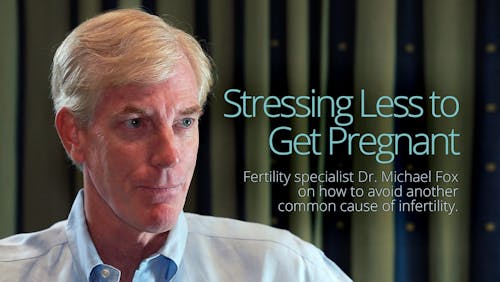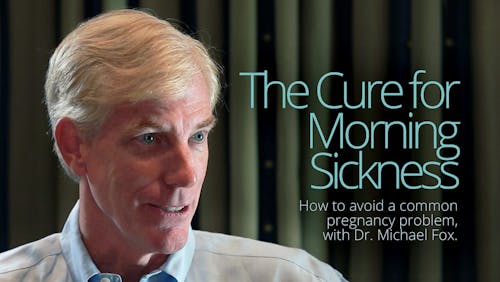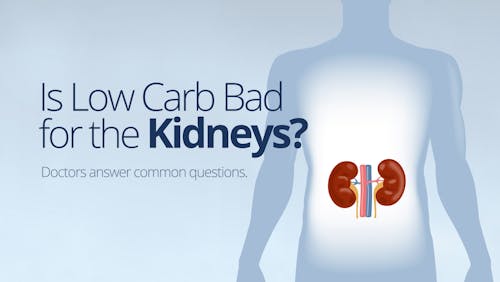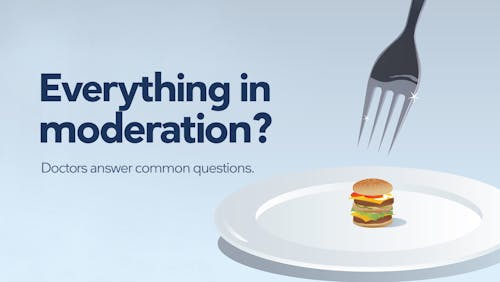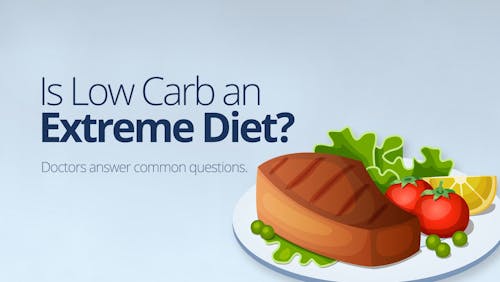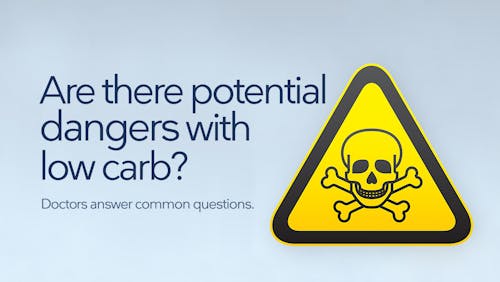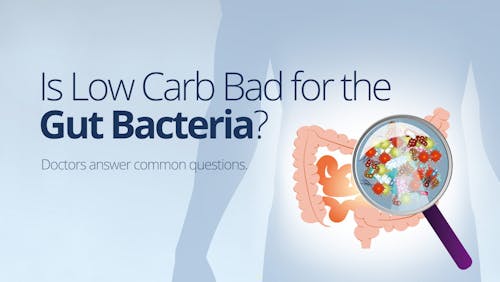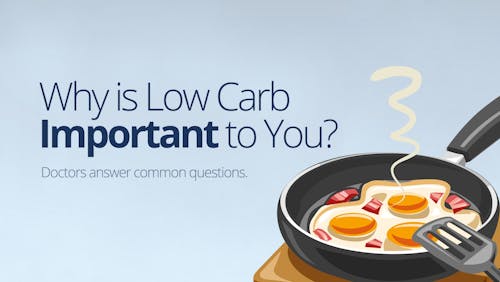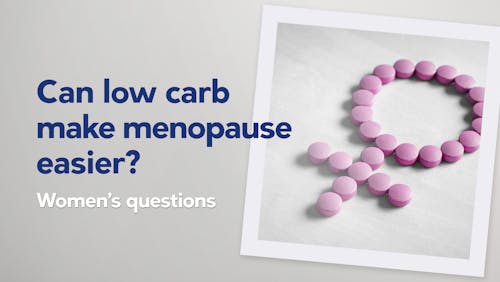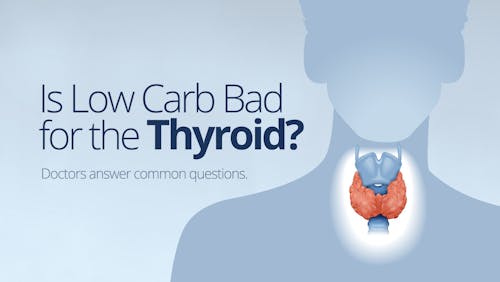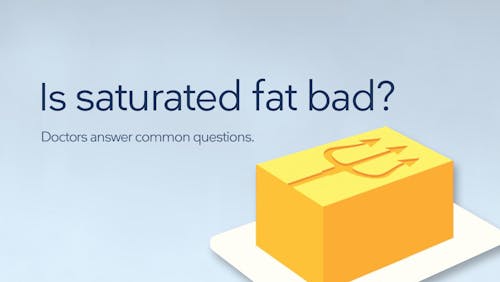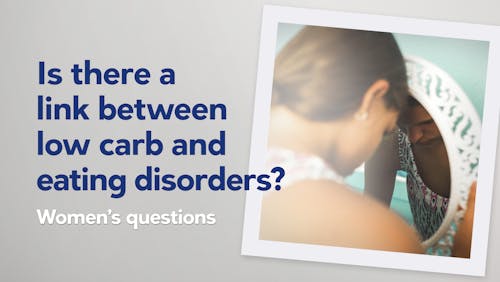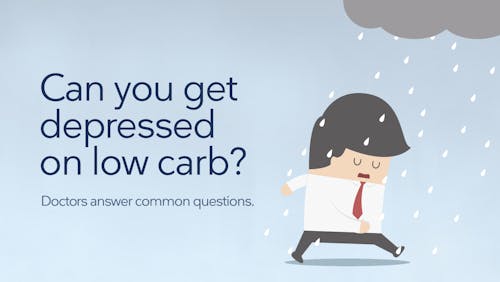Can progesterone help relieve menopause symptoms?

Can progesterone help relieve menopause symptoms? Why can’t you lose weight on a ketogenic diet? And can keto help with neurodegenerative conditions?
Get the answer to these questions in this week’s Q&A with fertility specialist Dr. Fox:
Can progesterone help relieve menopause symptoms?
I am 60 years old, and I had a partial hysterectomy at age 29. I suffered from migraines from age 18 to 50, and they stopped when I began topical progesterone. Later, I took topical estrogen cream, but it didn’t help the hot flashes at all. You don’t recommend progesterone, but what if the saliva tests show I am low in it?
- Do I go by saliva tests or not?
- How can I stop these hot flashes and night sweats?
Thank you,
Bobbie
Dr. Fox:
Good questions, Bobbie.
Progesterone is not needed except to prepare the uterus for pregnancy. It’s absent in menopause and the first two weeks of every cycle during the reproductive years. If it were necessary, women would be in trouble.
If I measure progesterone in any menopausal patient, it will be extremely low. That is normal and does not require replacement. Progesterone does cover up symptoms such as headaches, hot flashes, night sweats, etc., so women “feel better” when they are on it and thus think that they are healthier. Without needed estrogen, the hormone that genuinely treats the problem, deterioration can continue despite the progesterone “cover-up.”
Saliva testing for progesterone and estrogen is very inconsistent and vastly less accurate than blood testing.
Estrogen topical cream is inconsistent in delivering adequate and consistent serum levels of estradiol. Many creams are mostly estriol and estrone, 1000X and 100X LESS effective than estradiol in controlling symptoms. You need estrogen delivered consistently with blood monitoring of the estradiol levels (make sure it’s estradiol). The appropriate range is 60-200 or so depending on age.
Thanks.
Can’t lose weight in ketosis
Please help me.
I lost just over 100 pounds (45 kilos) on the low-carb South Beach diet in my late 20s, so I know the low-carb lifestyle works. I gained back approximately 30 pounds (14 kilos) after being hospitalized for eight days due to severe asthma and being treated with high-dose steroids for a couple of months. I kept the rest of the weight off, and it’s been over 15 years since then.
The South Beach diet didn’t work for me to take off the steroid weight, and I also have PCOS, so I tried the keto diet. I’ve been in ketosis with blood ketone readings between 1.1-1.9 mmol/L consistently, and the urine sticks always turn medium to dark purple.
I never go over on carbs, rarely go above on protein (if I do, it’s by a gram or two), and have a calorie deficit every day. By all indicators, I should be losing weight, but I’m not. When I did the South Beach diet, the weight dropped off so fast I couldn’t keep up with getting clothes that fit.
Now it’s been seven weeks of being in moderate ketosis and exercising regularly, and I have lost nothing, zero, zip, nada. My measurements haven’t changed, the amount of flab hasn’t changed, and I’m not more toned.
My doctor says my thyroid is fine and naturally tells me no wonder I’m not losing weight eating butter, bacon, and coconut oil and that I need to start eating whole grains and low-fat snacks. Conventional medicine cannot accept the keto concept, and I know this because I’m a critical care/ER nurse myself. But I know for a fact that if I eat brown rice and whole-wheat pasta, I’ll gain 5 pounds (2 kilos) in a week.
Please help me. I’m so discouraged and desperate. What is the point of staying keto if I’m going to be precisely the same size and shape as when I was eating lasagna and baked potatoes?
Wildangel72
Dr. Fox:
Don’t be discouraged! Focus on staying the course and consider that you may feel better with a TSH <1.5. If you are working nights or have a rotating schedule, this can be extremely stressful and raise cortisol, the stress hormone. I would ask for an am cortisol test. Healthy values are <10. Another sleep disturbance, such as sleep apnea, is also a huge issue. I would recommend not cutting calories. In women, this sometimes produces stress and foils the efforts. My general recommendations based on my clinical experience are the following: Start a trial of no aerobic exercise (resistance training is OK), no coffee, sleep for seven to eight hours per night, 200+ calorie meals every three hours (this can help if high cortisol is an issue), check and replace vitamin D levels, and replace iodine and magnesium through supplements. You may not need this pattern for life, but it may be worth an experiment to see how you respond. Sometimes life is a series of experiments. You can also see the diet doctor guide on weight loss stalls to see if that information helps.
Will the keto diet help with neurodegenerative conditions?
I have been told that the keto diet will help prevent neurodegenerative conditions from worsening. However, most of what’s on this site is information about weight loss. I’m wondering will this website help me in the neurodegenerative condition area, and if so, is it the same approach to the recipes?
Niamh
Dr. Fox:
Yes, the brain is very sensitive and responsive to ketosis. In certain situations, the recovery may be slow.
Diet Doctor has a few posts on Alzheimer’s disease, discussions of case reports, and a discussion on Parkinson’s disease. Hopefully some of those resources will help.
